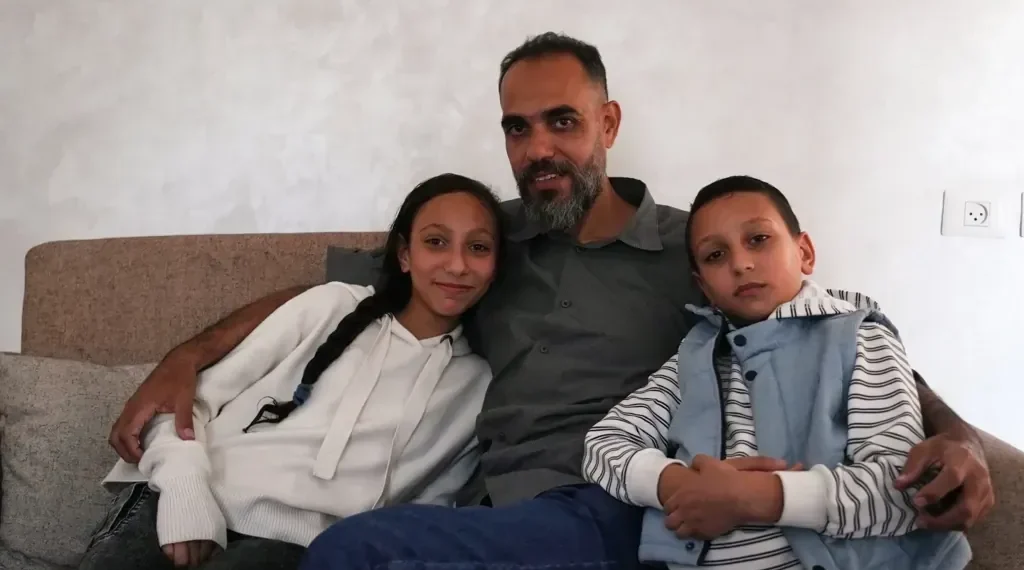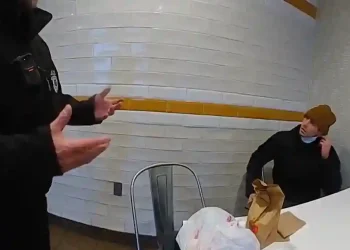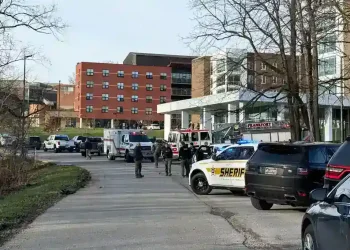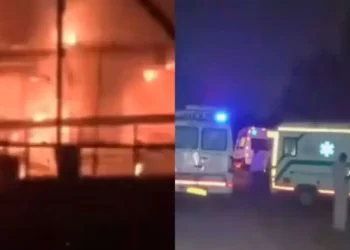Mohammed Abu Moussa, a 45-year-old medical technician, returned to Gaza last week after spending 20 months in Israeli detention. While he was overjoyed to see his surviving children, the relief was overshadowed by devastating news. His mother, sister, nieces, nephews, and other relatives had been killed in an airstrike while he was imprisoned.
Abu Moussa was among more than 1,800 Palestinians released under a ceasefire deal, which also included the release of the last living hostages held by Hamas. Around 250 other prisoners were freed to the West Bank or sent abroad. For many returnees, the sight of their homeland revealed the scale of destruction and personal loss they had been shielded from during imprisonment.
A Reunion Shattered by Loss
As the bus carrying Abu Moussa and fellow detainees approached Gaza, excitement quickly turned to grief. Crowds cheered, yet questions about missing relatives were often met with quiet, somber replies: “God rest their souls.”
Abu Moussa’s personal tragedy began shortly after Israel launched a military campaign following Hamas’ October 7, 2023 attack on Israel. Eight days later, an airstrike struck his family’s home in Khan Younis, southern Gaza, killing his son Youssef, his brother’s wife, and their two children. Video footage from the hospital where Abu Moussa worked showed him and his wife frantically searching for their son among the casualties.
Hospital Shelter and Separation
In the months that followed, Abu Moussa remained on duty at Nasser Hospital, treating waves of wounded civilians. He, his wife, and two surviving children sheltered there with hundreds of others displaced from their homes.
In February 2024, Israeli forces surrounded the hospital to search for suspected militants and ordered civilians to evacuate. Abu Moussa and his family were stopped at a military checkpoint, where he was separated and detained, marking the start of his extended imprisonment.
Harsh Detention Conditions
Abu Moussa described his detention as marked by abuse and harsh living conditions. He was initially held in a stadium and then transferred to Sde Teiman, a military prison, where detainees were forced to kneel for hours, physically beaten, and provided minimal food, water, or sanitation. He reported scabies outbreaks, infected wounds, and limited access to clothing or medical care. At one point, his rib was broken during a beating.
He was later moved to Negev Prison, run by civilian authorities. Beatings were less frequent, but conditions remained severe. Abu Moussa said sick detainees and those with chronic illnesses were often denied medication. One prisoner, Mohammed al-Astal, died after his condition worsened due to lack of treatment.
The Israeli Prison Service said it was unaware of Abu Moussa’s specific allegations. It maintains that prisons operate according to law, uphold prisoners’ rights to medical care, and investigate complaints. The military stated that systematic abuse does not occur.
Abu Moussa’s experiences are similar to those reported by other Palestinians detained during the conflict. The United Nations reported that at least 75 Palestinians have died in Israeli prisons during the war, citing conditions that in some cases amounted to torture.
Returning to a Shattered Homeland
Crossing into Gaza, Abu Moussa confronted the scale of destruction. Khan Younis, his home city, was unrecognizable, with entire neighborhoods flattened. Upon arrival at Nasser Hospital, he confirmed the safety of his wife and surviving children, but repeated questions about his mother and sister went unanswered. Only after persistent questioning did he learn that they had been killed in the July airstrike.
Grief and Reflection
Overcome with sorrow, Abu Moussa reflected on his mother’s enduring strength during previous conflicts, including the 2009 Israel-Hamas war. He mourned her deeply, wishing she could have witnessed his return. “I miss her. I want to see her. I want to kiss her hand, her head,” he said through tears.
Abu Moussa’s story highlights the human cost of the Israel-Hamas war. It shows the profound toll on families torn apart by imprisonment, airstrikes, and the destruction of homes, underscoring the ongoing suffering of civilians caught in the conflict.
Stay informed with JournosNews.com — your trusted source for verified global reporting and in-depth analysis. Follow us on Google News and BlueSky for real-time updates.
Returning to a Homeland in Ruins
Crossing back into Gaza, Abu Moussa was confronted with devastation. Khan Younis, his home city, was unrecognizable, with entire neighborhoods reduced to rubble. Upon reaching Nasser Hospital, he confirmed that his wife and surviving children were safe—but repeated questions about his mother and sister went unanswered. Only after persistent inquiry did he learn the full extent of his family’s deaths in the July airstrike.
Overcome with grief, Abu Moussa reflected on his mother’s enduring strength during previous conflicts, including the 2009 Israel-Hamas war. He mourned her deeply, wishing she could have witnessed his return. “I miss her. I want to see her. I want to kiss her hand, her head,” he said through tears.
Abu Moussa’s story is a powerful reminder of the human cost of the Israel-Hamas war. It highlights the suffering endured by families torn apart by imprisonment, airstrikes, and the destruction of homes—showing the profound impact of the conflict on individual lives and communities.
This article was rewritten by JournosNews.com based on verified reporting from trusted sources. The content has been independently reviewed, fact-checked, and edited for accuracy, neutrality, tone, and global readability in accordance with Google News and AdSense standards.
All opinions, quotes, or statements from contributors, experts, or sourced organizations do not necessarily reflect the views of JournosNews.com. JournosNews.com maintains full editorial independence from any external funders, sponsors, or organizations.
Stay informed with JournosNews.com — your trusted source for verified global reporting and in-depth analysis. Follow us on Google News, BlueSky, and X for real-time updates.














